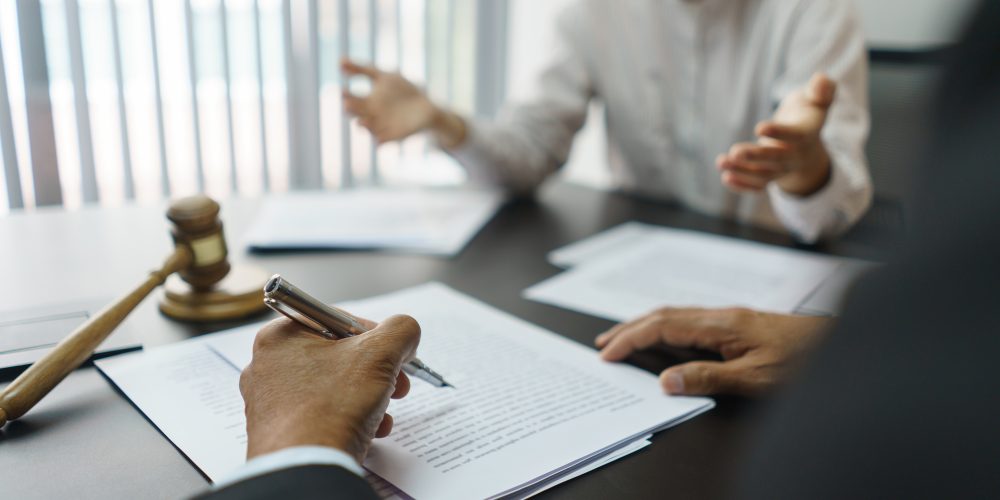Developing rapport with your criminal defence lawyer is crucial for the success of your legal defence. A strong connection fosters trust and open communication between you and your lawyer, laying the foundation for a collaborative working relationship. It can make you feel more comfortable discussing sensitive information about your case and expressing your concerns and goals, for instance, which enables your lawyer to better understand your needs. In addition, having a good rapport with your lawyer can enhance your confidence in their abilities and commitment to your case. This can help alleviate some of the stress and uncertainty associated with facing criminal charges.
It can be a challenge to establish a good working relationship in a stressful situation, though. If you’ve just signed up for the services of a criminal lawyer in Singapore, what can you do to foster a collaborative professional relationship with your legal counsel? Here are some of the strategies you can explore.
Be Open and Honest
Openness and honesty are the cornerstones of a strong lawyer-client relationship. By providing your lawyer with all relevant information about your case, even if it may be incriminating or embarrassing, you demonstrate your trust and commitment to working together towards a positive outcome. Avoid withholding information or minimising the severity of certain details. Doing so can hinder your lawyer’s ability to develop an effective defence strategy. Instead, be transparent and forthcoming about all aspects of your case, including your actions, motivations, and any potential challenges or obstacles you may face. Your honesty will enable your lawyer to provide you with the best possible legal advice and representation, ultimately increasing the likelihood of a favourable outcome for your case.
Communicate Your Concerns and Goals
Take the time to clearly communicate your concerns, priorities, and goals for the outcome of your case. This includes discussing any fears or anxieties you may have about the legal process, as well as outlining your desired outcomes and expectations for your lawyer’s representation. Be proactive in initiating discussions with your lawyer and express any changes in your circumstances or priorities as they arise. By maintaining open lines of communication, you can ensure that your lawyer understands your needs. This allows them to tailor their approach accordingly, which can lead to a more collaborative and effective legal strategy.
Ask Questions and Seek Clarification
Don’t hesitate to ask questions and seek clarification from your criminal defence lawyer about any aspects of your case that you may not understand. After all, your lawyer is there to help you navigate the legal system, and they should be willing to provide explanations and guidance as needed. Take the time to educate yourself about the legal process and your rights as a defendant, and don’t be afraid to challenge or question your lawyer’s advice if you have concerns. Actively engaging in your case and seeking clarification when needed are actions that will empower you to build a stronger understanding of your legal rights and responsibilities. This, in turn, will help you make informed decisions about your defence strategy.
Trust Your Lawyer’s Expertise
That said, trust is a crucial component of the lawyer-client relationship, and it’s important to trust your criminal defence lawyer’s expertise and judgment. Remember that your lawyer has the knowledge, skills, and experience to represent you effectively, and avoid second-guessing their advice or decisions without good reason. Trust that your lawyer has your best interests at heart and is working diligently to achieve the best possible outcome for your case. By placing your confidence in your lawyer and allowing them to guide you through the legal process, you can build a stronger working relationship.
Stay Engaged and Responsive
Respond promptly to your lawyer’s communications and requests for information, and make yourself available for meetings, court appearances, and other legal proceedings as needed. Demonstrate your commitment to your case by staying informed about its progress and actively participating in the legal process. This shows that, just like your lawyer, you are invested in your defence and willing to collaborate.
Respect Boundaries and Professionalism
Now, while it’s important to build rapport with your criminal defence lawyer, it’s also essential to respect boundaries and maintain professionalism in your interactions. Unless it’s an emergency, make it a point to avoid contacting your lawyer outside of office hours. Communicate respectfully and courteously as well during meetings and discussions. Keep in mind that your lawyer is a professional who is bound by ethical standards and confidentiality obligations, so treat them accordingly.
Be Patient and Realistic
Patience and realism are important virtues to cultivate when working with a criminal defence lawyer. It’s a must to understand that the legal process can be complex and time-consuming and that there are no guarantees on the outcome of your case. Be patient with your lawyer and be realistic about the potential challenges and limitations of your case. Avoid placing unrealistic expectations on your lawyer or becoming discouraged if the progress of your case is slow. Instead, focus on staying positive and proactive in your defence, trusting that your lawyer is doing everything possible to achieve the best possible outcome for your case.
Ultimately, building rapport with your lawyer can lead to more effective legal representation and a better overall experience throughout the legal process. By following the tips outlined above and fostering a strong and collaborative working relationship with your lawyer, you can navigate the complexities of the legal system more effectively and advocate for your rights and interests with confidence.






